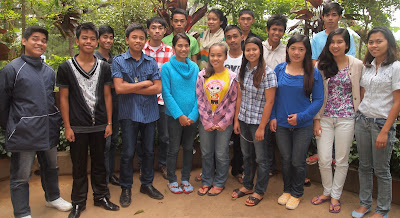Being an American Teacher with a Filipino Class
In my opinion, one of the greatest joys of being a teacher
is attending to the cornucopia of personalities found in the class. This joy is
even greater (if you are eager for a challenge) and more humorous when you are
dealing with students who speak English as a second language. I have the
advantage that, in the Philippines, students are taught from an early age to
speak English. My students have all graduated from high school, so they read
well and write fairly well; however the cultural differences, the laughter and
the occasional moments of frustration (asking a question and waiting five or
more minutes to watch the student struggle to communicate the answer) have certainly
continued to test my sense of good teaching principles. I am constantly trying
to reformulate words, slow down my rhythm and look into their eyes for signs of
confusion or comprehension.
I have also become a bit of a witty militant to maintain
some order and teaching cohesiveness: I have turned my class into a prison,
asking them to imagine shackling themselves to their desks during my period.
Off to the bathroom, the kitchen or dorm rooms, the students are in a constant
shuffle. My role is not to be a disciplinarian, but I figure a little
self-control never hurt anyone. If I can teach for an hour and a half without
exiting the class, I assume I can expect the same from my students. Teaching is
about mutual respect and learning; and with appreciation for its challenges, I
am growing and stretching my ideas at every turn.
What shall it profit a man, if he shall gain the whole world,
and lose his own soul? (Mark 8: 36)
What shall it profit a man, if he shall gain the whole world,
and lose his own soul? (Mark 8: 36)





Comments